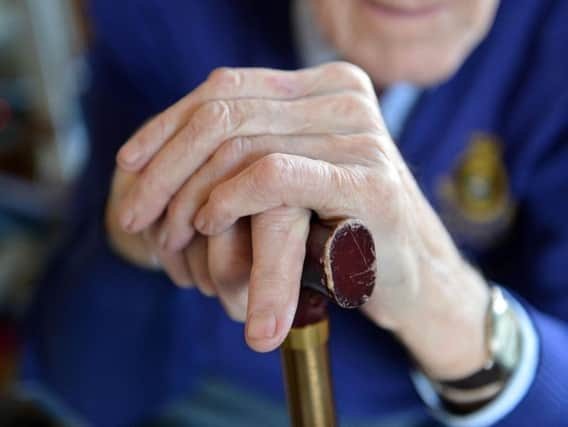Legal Eagle: Safeguarding the elderly when they go into care


When elderly loved ones become unwell from mental health or physical concerns, families have difficult and important decisions to make about future care.
Which care home will best suit their needs? Where will they be most happy? Will the care home keep them safe?
Advertisement
Hide AdAdvertisement
Hide AdFamilies need to know they are safe and well cared for, and we are frequently asked to help families whose loved ones have suffered injury due to lack of care.
When care is subsidised by the local authority, they will make recommendations regarding a suitable care home.
However, families can still have their input and provide their preferences.
Visits can be made to suitable providers, who should welcome the opportunity to discuss their care package and level of care.
Advertisement
Hide AdAdvertisement
Hide AdFamilies can challenge the local authority if they consider that the appropriate level of care is not being provided or where they consider that there is a more suitable care home available.
If necessary, this can be done by making a complaint to the local authority.
The complaint will be investigated and a response must be given in accordance with their complaints procedure.
Care homes are regulated by the Care Quality Commission. Where there are concerns regarding a vulnerable adult, a report will be made.
Advertisement
Hide AdAdvertisement
Hide AdFor example, by a health care professional. This is called ‘a safeguarding alert’.
The family will be informed about the safeguarding alert and may be invited to attend strategy and review meetings.
Safeguarding means protecting individuals’ health, wellbeing and human rights, so they can live free from harm, abuse and neglect.
Examples of safeguarding issues include pressure sores, malnutrition, incidences of falls, unexplained falls and unexplained bruising.
An unfortunate common occurrence is accidental falls.
Advertisement
Hide AdAdvertisement
Hide AdIf your family member has a history of falls or has entered the care system because of a fall then it is imperative the care provider carries out a falls risk assessment.
The assessment should document the falls history and assess the possibility/risk of future falls.
The care provider should then put in place measures to reduce the chance of falls.
For example, they should only mobilise with the assistance of two carers, or guards should be placed on their bed to prevent them trying to get up on their own during the night, when they are probably at their most confused and disorientated.
Advertisement
Hide AdAdvertisement
Hide AdI am successfully pursuing claims against local care homes, so if there has been a safeguarding alert raised or if you have concerns regarding the care of a loved one, please contact Tilly Bailey & Irvine to discuss what steps you can take against the care provider.